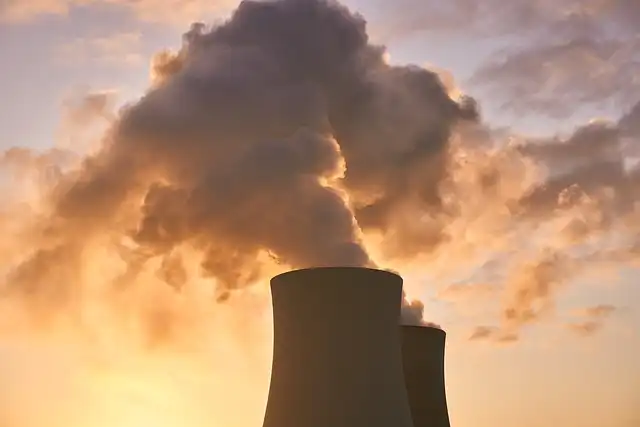Microsoft vowed to fight climate change — then genAI came along

That’s the message delivered by Microsoft’s spike in water use to cool AI data centers, and the company’s recently proposed deal to reopen Three Mile Island, the site of the worst nuclear power disaster in US history.
If intelligent AI systems run amok, numerous individuals have actually cautioned that AI can offer an existential hazard to humanity. It would be paradoxical if the existential threat turns out not to be AI itself, however rather climate destruction brought on by AI’s ferocious electrical power demands.
Smith pledged Microsoft would not use deceitful methods to arrive, for instance by putting carbon in the atmosphere, after that getting so-called “offsets” that assert to decrease carbon in other places, such as planting trees in a jungle.
Microsoft will no doubt tout nuclear power as supplying clean, carbon-free energy. That overlooks myriad other troubles. Crashes at Chernobyl, Fukushima, and Three Mile Island remind us the plants remain at risk to catastrophes caused by both human beings and nature. Past that, there is still no secure way to permanently keep hazardous waste, according to previous chairman of the US Nuclear Regulatory Commission Allison Macfarlane, presently director of the School of Public Policy and Global Affairs at the College of British Columbia.
The same technology utilized to make fuel for nuclear plants can be utilized to make nuclear tools– and nuclear plants are notably unconfident. Use of nuclear power isn’t the only environmental issue posed by the increase of genAI devices and platforms like Microsoft’s Copilot. Thanks largely to AI, Microsoft’s water make use of increased 34% in between 2021 and 2022– and that was before genAI took off.
Investigations have actually found that offsets can be a kind of “greenwashing” that enables large business to border themselves with the golden halo of dealing with environment adjustment, while doing little or absolutely nothing to attain necessary objectives. An investigation by The Guardian and others concluded, for instance, that “more than 90% of rainforest carbon offsets by [the] greatest certifier wear.”
This new offer would certainly reactivate the facility, with Microsoft paying plant owner Constellation Energy to resume a nuclear reactor next to the one that melted down and acquiring all of its electrical output for 20 years. That would help deliver a section of the vast quantities of power required to run Microsoft’s AI data.
If the company minimizes its electricity use by reducing back on its genAI strategies, rival companies such as Google, Amazon, OpenAI, Meta and others will certainly load the breach. As proof, Google currently has dropped short of its climate change goals: in 2023 its electric usage leapt 13% many thanks to its use of AI, rather than drop as Google had predicted.
Preston Gralla is an adding editor for Computerworld, a blog owner for ITworld, and the writer of more than 45 books, consisting of NOOK Tablet: The Missing Handbook (O’Reilly 2012) and Just How the Internet Functions (Que, 2006).
Then there’s what could be nuclear power’s biggest problem. The same technology utilized to make fuel for nuclear plants can be used to make nuclear tools– and nuclear plants are significantly unconfident. The Union of Concerned Scientists cautions: “The NRC [Nuclear Regulatory Payment] has consistently downplayed the danger of nuclear terrorism, unwinding its needs for safety and security exercises in reaction to industry pressure to decrease costs.”
All this does not take into consideration the manufacturing and transportation of the premium chips that do all the information crunching. And it does not make up how much additional e-waste will be developed– older generations of chips and equipment will certainly be consistently disposed of when they’re changed by significantly effective new generations.
That’s the message supplied by Microsoft’s spike in water usage to cool down AI data facilities, and the company’s recently recommended offer to reopen Three Mile Island, the website of the worst nuclear power calamity in US history.
Offering all that electrical power is just the beginning of genAI’s– and Copilot’s– environmental impact. Due to the fact that of the warm created by securely stuffed chips, data facilities need to be cooled down. Many thanks largely to AI, Microsoft’s water utilize spiked 34% in between 2021 and 2022– which was prior to genAI removed.
Use of nuclear power isn’t the only environmental issue positioned by the rise of genAI devices and systems like Microsoft’s Copilot. Because genAI calls for tremendous amounts of computing power compared to conventional innovations, that’s. GenAI first requires to be educated. Once it’s trained, it makes use of intricate estimations to manage each incoming request. That, consequently, requires constructing huge data centers, which utilize remarkable amounts of electrical power.
In the past, Microsoft has actually shown it’s severe concerning combating environment modification. If the business minimizes its electrical energy usage by cutting back on its genAI plans, rival firms such as Google, Amazon, OpenAI, Meta and others will certainly fill the breach. As evidence, Google already has actually dropped brief of its environment modification objectives: in 2023 its electrical usage jumped 13% thanks to its usage of AI, rather than drop as Google had forecasted.
1 Microsoft account2 Mile Island
3 nuclear
4 Smith vowed Microsoft
« Best early Chromebook deals for Prime Day 2024IT gains open-source tools to manage iPhones, iPads, and Macs »
